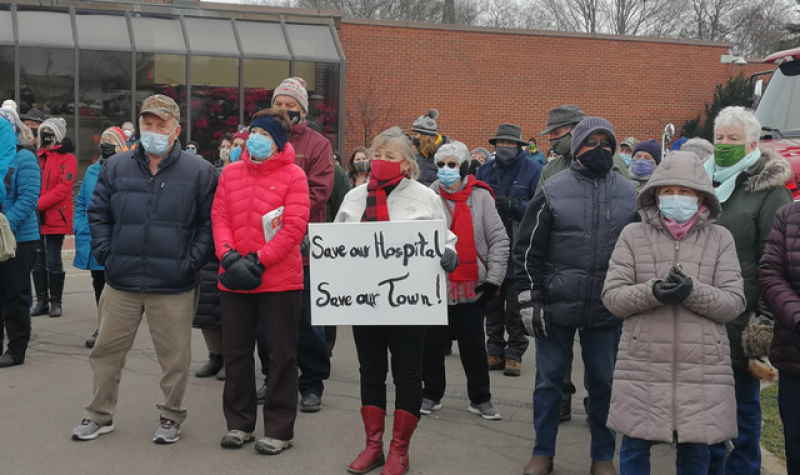There are almost enough nurses hired to fill positions at the Sackville Memorial Hospital emergency department (ED), but the hospital has less than half the doctors it needs.
According to information released recently by Horizon Health Network, nine out of ten registered nurse (RN) positions in the Sackville ED are filled, but only three out of seven physician positions are filled.
The two most recent closures of the Sackville ED were due to a shortage of doctors available to work. At least two doctors stopped working in the department after a recent change by Horizon, which lifted a rule requiring them to work ED shifts in order to maintain a practice in Sackville. The change was meant to help make recruitment of new doctors to the Sackville area easier, since not all family doctors want to work in emergency.
Nurse practitioners and the return of acute care?
In his monthly report to council, Mayor Shawn Mesheau says that interim Horizon CEO Margaret Melanson recently re-affirmed the committment to return 24/7 service to the Sackville hospital ED.
Mesheau and other local mayors met with Melanson and newly appointed trustee Suzanne Johnston in August. Mesheau reported that nurse practitioners are now working alongside doctors in the Sackville ED to help cover primary care related needs. His report also says that several acute care beds are expected to be opening in the Brunswick Unit of Sackville hospital in October. All acute care beds were transformed to pre-long term care in December 2021, at the same time that emergency service hours were cut by two thirds. https://www.chmafm.com/welcome/sackville-rallies-again-to-save-our-hospital/
Coon calls for changes in line with Fredericton doctor’s list

Earlier this month a Fredericton emergency room doctor issued a list of recommendations to help solve the health care crisis in New Brunswick.
Dr. Yogi Sehgal says that to come up with the list, he collected input on social media and in conversation with other health care workers, members of the public, administrators and members of government. Sehgal’s list contains 45 different big and small fixes for emergency rooms, primary care, nursing, and the system as a whole.
Green leader David Coon is a fan of Sehgal’s list, in particular two recommendations, one to establish primary care clinics to give people access to urgent care not currently available outside of emergency departments, and another to start to fund tuition and expenses for nurses willing to upgrade their skills through the province’s bridging program.
At the end of August, the Green Party released a call for the Higgs government to act on some of Sehgal’s recommendations. CHMA spoke with Fredericton MLA and Green party leader David Coon to find out more:
Sensible recommendations, but not necessarily for SMH
Sackville doctor Allison Dysart says he found Sehgal’s list “very sensible,” though he cautions against applying technical fixes across the board. “His list was really from the perspective of what would help an urban emergency room work better,” says Dysart. “And I think his list should be interpreted strictly in that light. From that perspective, I really very much agree with him.”
However fixes for urban hospitals could actually serve to help more rural counterparts like Sackville, says Dysart, where problems have generally been created by problems elsewhere. “The fact that two and a half years ago Horizon wanted to shut down Sackville at night and wanted to get rid of acute care medicine at the Sackville hospital… Those decisions weren’t made because Sackville wasn’t working well or because we were running into terrible difficulties,” says Dysart. “Really, they were made because Moncton wasn’t working well, and Saint John wasn’t working well, and Fredericton wasn’t working well.”
“We were kind of managing all right, really, if we’d been left to our own devices,” says Dysart. “What we see now is very artificial situation in Sackville. It was created by management decisions.”
To be fair, Dysart says Horizon was responding to significant problems in its urban hospitals. Unfortunately, service cuts in rural hospitals have not solved issues in urban hospitals, and those problems have now grown to include rural hospitals.
“Nothing’s better in the urban hospitals. In fact, it’s far worse. And now the rural hospitals can’t even do their job properly,” says Dysart.


